Now your phone can tell if you have depression using the selfie camera
2025-06-17 IDOPRESS
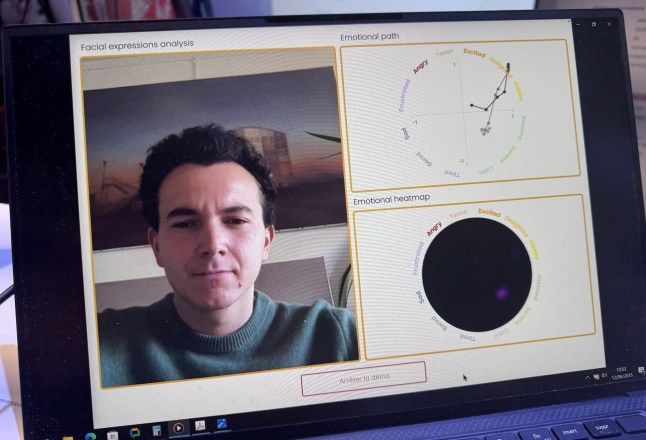
The app will track your emotions throughout the day (Picture: Jen Mills/Emobot)
Most of us stare at our phone or computer for hours every day – and soon,it could be staring back.
New technology to monitor mental health works by analysing emotions throughout the day using the front-facing camera,producing a daily report similar to step count or a heart rate graph.
Hundreds of patients are already using an app called Emobot to track their mood,seeing if their depression is getting worse or responding to treatment.
Co-founder Samuel Lerman told Metro that it is classed as a medical device in France,and they are working with psychiatrists to prescribe it to patients.
To work as a mood ‘thermometer’,the app takes a picture of your face every second,and categorises if you’re feeling energised,pleased,happy,content,relaxed,bored,sad,or angry using a heat map.
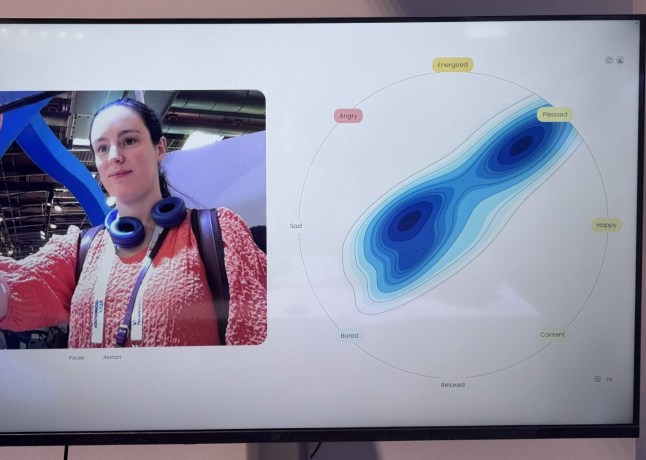
Metro reporter Jen Mills looked mostly ‘pleased’ and ‘bored’ while visiting the stand,according to the algorithm (Picture: Jen Mills)
The team were initially afraid people would find this too intrusive,given the app constantly watches you,and a future version will even listen to your tone of voice as you go about your day via the phone microphone.
Mr Lerman said: ‘The camera is open in the background all the time. So we were a bit skeptical about that aspect,however the feedback was pretty good.’
He said that no photos from the camera are transmitted to a central database or stored,as they are processed locally by AI on the user’s phone and deleted.
This technology is similar to that being developed for office workers,to check if they are really sitting at their computer,or if they appear tired.
We tried the emotion mapping software on display at the Viva Tech conference in Paris,and a realtime image showed reporter Jen Mills as appearing both ‘pleased’ and ‘bored’ at the same time.
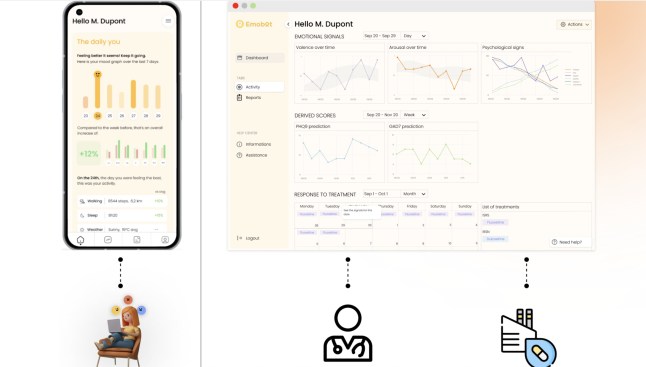
Click to enlarge: Insights shown to the user about their state of mind (Picture: Emobot)
Mr Lerman said the app helps doctors track patients’ response to treatment as well as ‘detect sudden deterioration of their mood’ and relapse risk.
He said it could also speed up diagnosis of longterm mental health conditions,such as distinguishing bipolar disorder from depression,which can take years to recognise.
For now,it is used in clinical settings,but he sees potential for it to be used by the general public in future too if they want to monitor their mood.
Would you use an emotion tracker?
No,I won't use any kind of health tracker
I'd use a physical health tracker but not this
Yes,to get an overall picture of my health
Share on Facebook
Share your results
Share on X
Tweet your results
To train the algorithm on how to recognise emotions,they asked patients to fill out questionaires on their state of mind while using it. Questionaires on mood are currently the main method of diagnosing mood disorders.
They also trained the AI on open source information,and are conducting clinical trials into biomarkers of depression,to improve the accuracy of the results.
To get a wider picture of a person’s mental state,they also plan to integrate information like sleep,step count,and even the weather.
It might sound dystopian to have your phone constantly taking photos of you,but some see it as a logical next step when we track so much of our health already,such as an Apple Watch measuring heart rate variabilty,sleep cycles and wrist temperature.
Having such sensitive data collected and digitised also poses a risk,but this is one that all health apps must grapple with — including the NHS,which was hit by a damaging cyber attack last year.
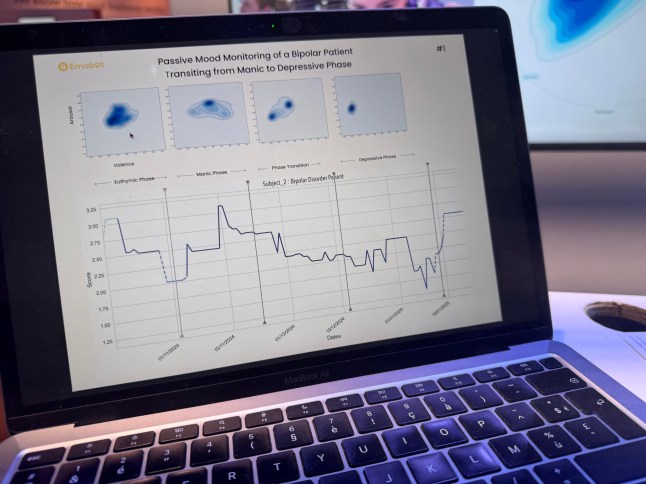
Click to enlarge: A graph showing a bipolar patient’s transition from mania to depression (Picture: Emobot)
Mental health apps were a theme of the Viva Tech conference,Europe’s biggest tech event. They are seen as a potential way to address the current shortages in professional help,with many on long waiting lists,or limited by living too far away from treatment.
Tech offering AI therapists,remote monitoring,and self help is booming,with investors identifying this and similar as a key growth area that could go from being worth £5.5 billion in 2025 to £17.5 billion by 2032.
Michel Treskow,a partner at venture capital firm Eight Roads Ventures,told a panel his company was already investing in the field: ‘There is a fundamental shortage of supply practitioners,funding,and time. We believe technology can help address all of these issues to some degree.’
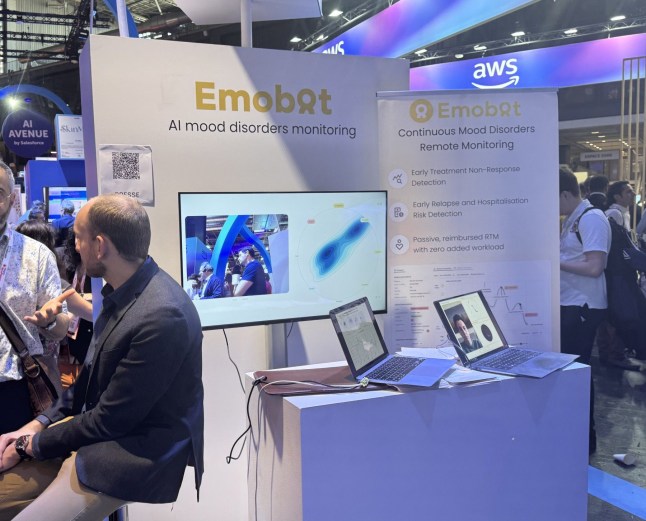
Emobot’s stand,pictured at the Viva Tech conference in Paris last week (Picture: Jen Mills/Metro)
Comparing mental health tech to self-driving Waymo taxis (already a familiar sight in southern California),he said there was an open question about how much tech could replace or add to traditional mental health treatment.
‘There are still plenty of people out there who don’t want to take a Waymo and would rather stick with somebody driving the car,’ he said.
‘The question is,is it just as safe? If the answer is yes,then it becomes a choice. If it’s not as safe,we ought not to do it.’
